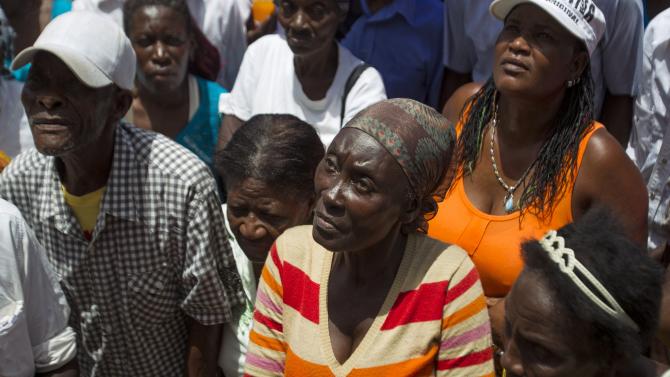
An unfunny thing happened while the media was obsessing over now-former Spokane, Wash., NAACP President Rachel Dolezal: The government of the Dominican Republic moved forward with yet another major human rights violation against Dominicans born to Haitian parents.
In 2013 the Dominican Republic Constitutional Court ruled that those born in the D.R. to Haitian parents without proper documentation (legal immigrant status) were not citizens of the Dominican Republic, even if in possession of a Dominican Republic birth certificate.
Many railed against the ruling because of the inhumanity of stripping the citizenship of those who were born in the Dominican Republic and have lived their entire lives in the country. Others argued that the government was within its rights because the Dominican Republic does not automatically grant citizenship to those born on Dominican soil without proper documentation. The fact that many born to Haitian parents had obtained birth certificates does not make them valid or legal citizens just because they have lived, loved, worked and purchased property in the D.R.
As if the loss of citizenship weren’t enough, reports have surfaced that the government has now planned a mass deportation of Dominicanswho are no longer considered Dominican because of their Haitian parentage and lack of proper paperwork. Thousands of Dominicans born to Haitian parents are now eligible to be detained and deported to neighboring Haiti if they have not secured legal documentation by this week’s deadline.
While many of us have been enthralled by black Twitter’s dragging of Dolezal and her shenanigans, mass sweeps have reportedly been happening in the poor neighborhoods of Santo Domingo and Puerto Plata, the two main hubs of immigration in the D.R., where dark-skinned people with Haitian features have been harassed, detained and released.
And while we’ve spent days discussing a white woman pretending to be black, actual black people are having their rights trampled on with little to no fanfare in the U.S. media. Nearly 1.5 million people of Dominican descent live in the U.S., and more than 800,000 of Haitian descent (pdf) live here, so why has the U.S. media been largely silent on this issue? In terms of national broadcast coverage, we’re talking nada.
This case has issues of nationality, racial and ethnic identity, dominant media images, immigration, access, power and privilege all over it, and yet there has been little discussion about this pressing matter, even on black Twitter. Don’t get me wrong. I love black Twitter like everyone else, and the Dolezal memes are everything, but the human rights violations happening in a country to which many of us have ties should be a priority in reporting, discussion and activism.
As for folks who are rallying behind a white woman pretending to be black and faking a lot of her story, why aren’t these same folks rallying behind those who are actually black and are being removed from their property and the only lives they’ve known? If the laws of the Dominican Republic don’t line up with humanitarian practices, then what, if anything, can be done about it?
Depending on the source, an estimated 100,000 to 300,000 Dominicans born to Haitian parents could be slated for deportation. It will be a sad commentary when this happens without so much as a peep from the larger black community in the United States.
Nsenga K. Burton, Ph.D., is editor-at-large at The Root and founder of the award-winning news blog the Burton Wire. Follow her on Twitter.















